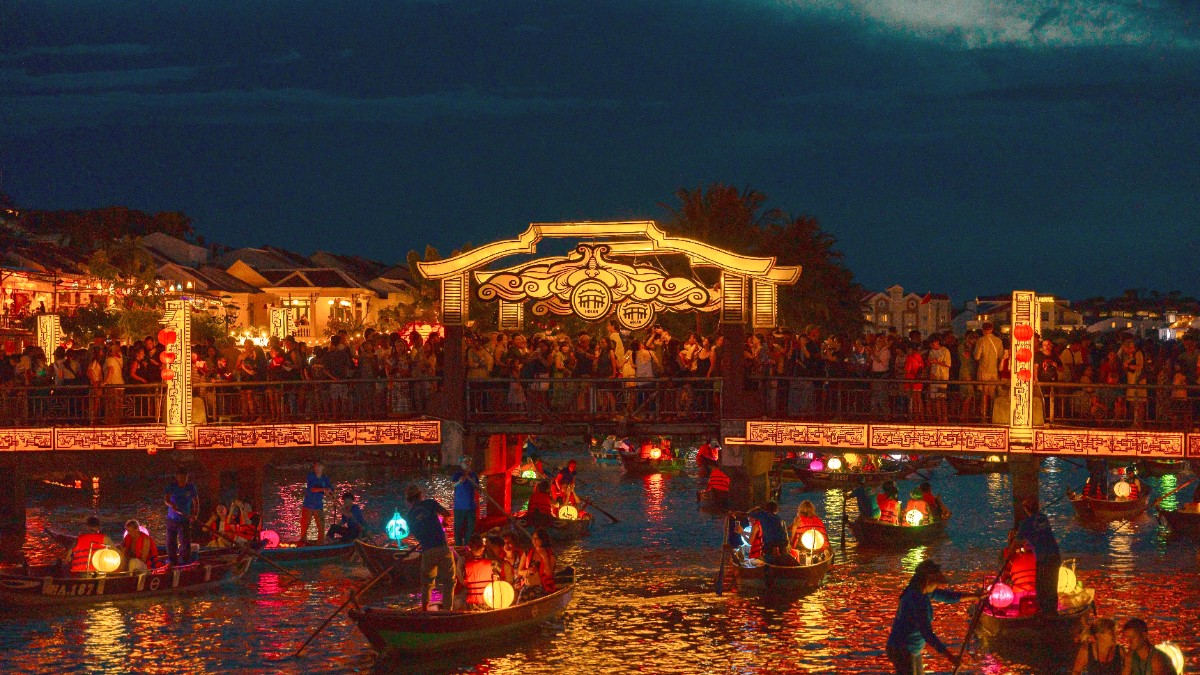
Central Vietnam, Vietnam
Cham Islands (Cu Lao Cham Marine Park) is an UNESCO Biosphere Reserve. Visitors follow rules.
Coconut Forest efforts concentrate on maintaining ecological balance while permitting tourism.
Freshwater resources can face strain. Be mindful of your water usage, like taking shorter showers.
Responsible environmental practices preserve Hoi An's natural beauty.
Vietnam faces challenges with waste management and plastic pollution. Public recycling infrastructure has limits.
Consider choosing airlines that offer carbon offset programs for your flights. Opt for more sustainable transport methods.
Search for hotels with sustainability certifications or those that clearly state their eco-friendly methods.
Select tour operators that prioritize responsible tourism, support local communities, and have clear environmental policies.
Support organizations dedicated to environmental protection.
Support RainforestsConscious travel choices contribute to the preservation of Hoi An's natural beauty.
Engage with Hoi An's culture respectfully for a more authentic journey.
Hoi An Ancient Town's preservation as an UNESCO site shows major cultural preservation efforts. Support traditional crafts by buying directly from artisans.
Dress modestly when visiting religious sites or traditional villages. Ask permission before taking photos of people. Bargain politely at markets.
Consider people's privacy. Do not photograph children without parental permission. Avoid intrusive photography in religious ceremonies.
Dress modestly, covering shoulders and knees. Remove shoes before entering. Speak quietly. Do not turn your back to religious statues or altars when praying.
Simple gestures convey respect in daily interactions.
Do not point with your feet.
Remove shoes when entering homes or temples.
Use both hands to give or receive items.
Cultural sensitivity deepens your appreciation for Hoi An's heritage.
Support the local economy by making conscious spending decisions.
Engage in activities that directly benefit local communities. These include cooking classes at Tra Que Vegetable Village.
Seek out shops that clearly state their support for fair wages and ethical production for artisans. Buy directly from workshops.
Dine at local street food stalls and small family-run restaurants. Shop at the Central Market. Hire local guides.
Do not purchase items made from endangered species, like coral or ivory. Do not give money directly to begging children. Be wary of overly cheap tours.
If you wish to donate, do so through established and reputable local charities or NGOs rather than giving cash to individuals on the street.
Donate through established local charities.
Consider giving to Non-Governmental Organizations.
Direct giving to individuals often has less impact.
Verify the origin of souvenirs to avoid supporting illicit trade.
Spending wisely can contribute directly to Hoi An's local prosperity.